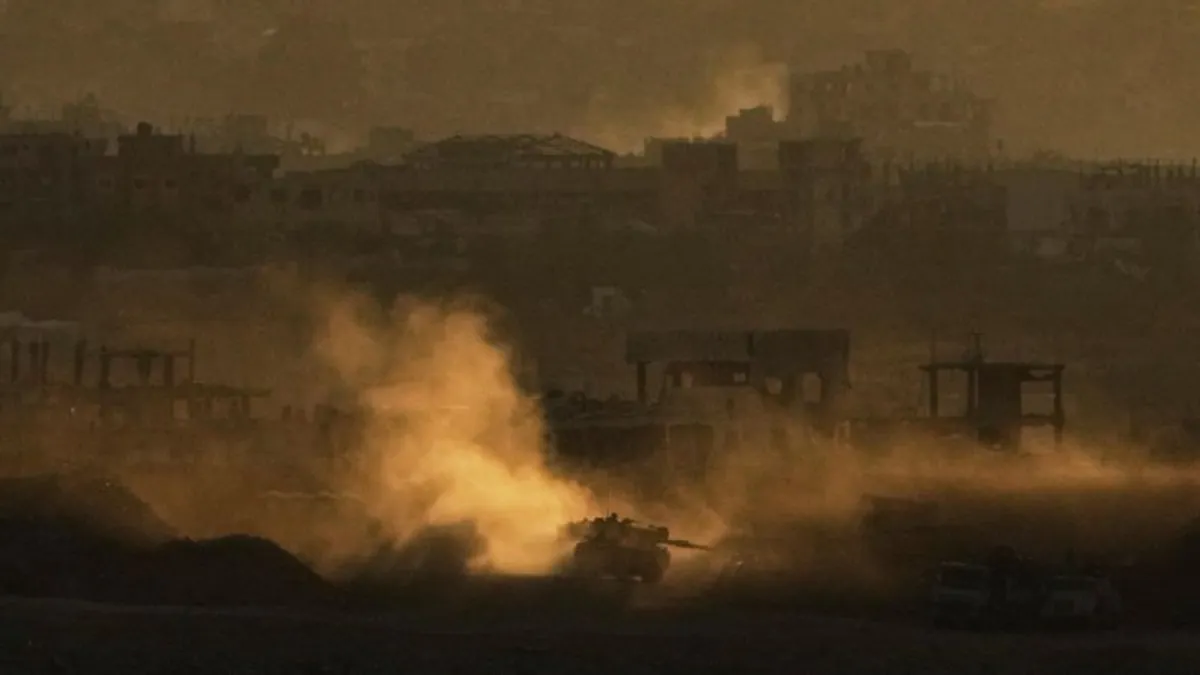
On Sunday, Israel’s security cabinet made a pivotal decision to enhance its military operations in Gaza, as reported by two Israeli officials. This vote follows the announcement that the Israeli military would mobilize tens of thousands of reservists, significantly boosting its operational capacity in the besieged Palestinian territory.
According to an Israeli official, the newly established plan for Israel’s ongoing war in Gaza entails “the conquest of territory and remaining there.” This strategy indicates a shift in military objectives, where the Israeli military aims to forcibly relocate the Palestinian population to southern Gaza while executing “powerful strikes” against the militant group Hamas. The conflict has already seen over 2,400 Palestinians killed since mid-March, when Israel initiated a series of aggressive strikes that ended a nearly two-month ceasefire.
The ongoing conflict has had devastating consequences, with more than 52,000 Palestinians reported dead in Gaza since the war commenced, according to the Palestinian Ministry of Health. This alarming statistic underscores the urgent humanitarian crisis that has developed as a result of the military operations and blockades.
Israeli officials have indicated that the escalation of military engagement will be gradual, allowing for the possibility of renewed ceasefire negotiations and a hostage release deal before the anticipated visit of U.S. President Donald Trump to the region in mid-May. Although Trump is scheduled to visit Saudi Arabia, the UAE, and Qatar next week, there is currently no planned stop in Israel.
The cabinet also discussed the potential resumption of humanitarian aid deliveries to Gaza under a new framework. While this framework has been approved, it has yet to be implemented. Currently, Israel's blockade of humanitarian aid into the strip has persisted for nine weeks, exacerbating the humanitarian crisis.
During the cabinet meeting, tensions arose regarding the resumption of aid deliveries. Two far-right cabinet members, National Security Minister Itamar Ben Gvir and Settlements Minister Orit Strook, expressed opposition to any resumption of aid. Conversely, Israel Defense Forces (IDF) Chief of Staff Lt. Gen. Eyal Zamir argued that Israel has an obligation under international law to facilitate aid deliveries. Reports indicate that the Israeli media coverage of these arguments is accurate.
Israel’s rationale for cutting off humanitarian aid is to pressure Hamas into releasing hostages. However, international organizations have condemned these actions, stating they violate international law and risk creating a man-made famine. Some critics have accused Israel of employing starvation as a weapon of war, which is classified as a war crime.
Officials from the U.S. and Israel are currently discussing a new mechanism to deliver humanitarian aid to Gaza that would circumvent Hamas. An announcement regarding this framework could be forthcoming. The proposed delivery mechanism aims to ensure that aid reaches the Palestinian population while implementing safeguards to prevent diversion by Hamas or Islamic Jihad.
An unnamed private foundation is anticipated to oversee the aid delivery process into Gaza, with the expectation that the United Nations and various international aid organizations will collaborate within this framework. However, aid agencies operating in the occupied Palestinian territory have rejected the new delivery plan, asserting that it seems designed to reinforce control over essential life-sustaining items and may fail to adequately assist Gaza's most vulnerable residents.